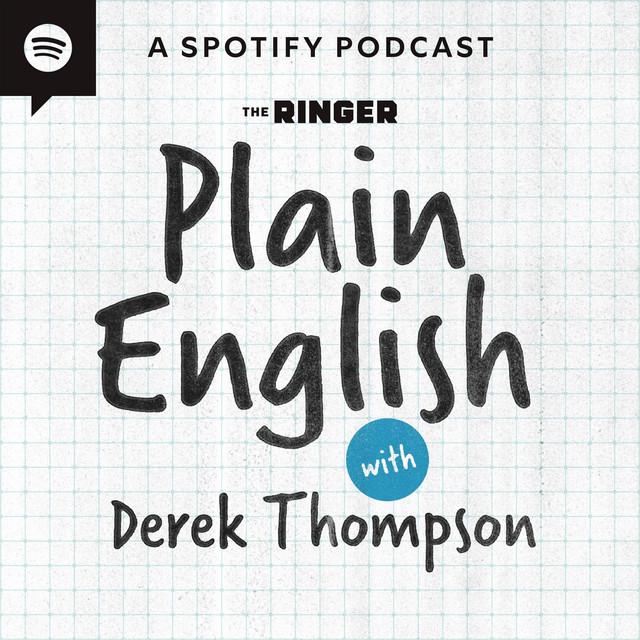
Hosts
About the episode
I’m very concerned about the relationship between smartphone use and America’s mental health crisis. But many researchers don’t see things my way. They insist that there is little to no empirical data showing that smartphone and social media use drives up anxiety or depression.
So what’s the truth about smartphones, social media, and mental health? That’s the question that the NYU researcher Jay Van Bavel set out to answer with his collaborator Valerio Capraro. They took dozens of claims about smartphones, sent them to hundreds of experts in the field, and asked them whether these claims were probably true, probably false, or unknown—and why. The result was a massive survey, one of the largest of its kind in the history of psychology. Today, Van Bavel joins the show to tell us what he found, what surprised him, and why his consensus survey made so many researchers so angry.
If you have questions, observations, or ideas for future episodes, email us at PlainEnglish@Spotify.com.
Summary
In the following excerpt, Derek and Jay Van Bavel talk through the background and methodology for the expert survey Van Bavel and Valerio Capraro conducted on the impacts of social media.
Derek Thompson: Listeners might remember that you starred in one of my favorite episodes of this show, the four dark laws of online engagement. That’s a show that I think about all the time, about the ways that the psychology of user behavior on the internet might be driving all of us crazy. Before we get to this, I thought, really fascinating piece of research, just remind folks who you are and what you do.
Jay Van Bavel: My name is Jay Van Bavel. I’m a professor of psychology and neuroscience at New York University, and I run the Center for Conflict and Cooperation. One of the main themes of the research that I do, I’ve been doing for the last decade, is the role of technology, especially social media, in society and how it fosters conflict or cooperation between individuals all the way up to societies and between countries.
Thompson: Tell me about this consensus project. Jonathan Haidt called it the largest-ever expert survey. I wasn’t entirely sure if he was talking about literally all expert surveys in the history of mankind or maybe largest-ever expert survey in modern psychology. Maybe you can unpack some of that language. But what’s the motivation for this thing, and how did it come together?
Van Bavel: It’s an interesting story. My colleague, who’s the lead author in the paper, Valerio Capraro, I’ve published a couple other papers with him, including on technology and AI, and we were both invited to write papers for this special issue on the impact and harms of social media. He emailed me and asked me if we wanted to team up and write it together. Initially, he suggested maybe we could get a panel of leading experts and make it a consensus of what we all believe.
When he initially suggested it, he had actually suggested Jon Haidt join us because he has the no. 1 bestselling book in the country on the harms of social media. I responded in my very first email to him saying, “Jon also has a number of prominent critics in the literature, so if you’re up for it, it might be worth bringing on some of those critics and seeing if we can find what the consensus is between a really diverse group of experts who’ve been studying and thinking about this topic.” Although I warned him, I said, “This is going to be really stressful.” So I said, “It’s up to you if you want to take the lead on this.”
Thompson: Well, keep going. There are 229 experts here. Was it just like the longest cc email from the get-go, or how did you find a way to bring in the right kind of experts to answer these questions? I assume that there was some filter process, like it was psychologists and maybe sociologists, but it wasn’t like, “Hey, if you’re an astrophysicist and you have my email and you’re a concerned parent, you can vote on the mental health of adolescents in the Nordics.”
There must have been a curation process here. Without boring people, because we’re going to get to the meat of this in just a second, what’s the methodology? How do you find an expert cohort of more than 200 people to vote on dozens of claims about the effect of smartphones on mental health?
Van Bavel: That’s a great question, and it’s one of the challenges of the paper. We originally started by building a small group to just figure out: What were the claims that we were going to start with? We decided to start with the claims from Jon’s book, and we invited a number of people from various perspectives on this topic, including critics of Jon, to be part of that curation of: What were the key claims in this literature?
We added claims that weren’t from Jon’s book but were additional claims we were thinking about. Then the people that were this core group that had built this set of claims, then we started posting on Listservs and reaching out to our colleagues who we knew to be experts in the field, inviting them to participate in this survey. Basically, what we said is that “You can be an author in this paper if you do this.”
I will say that this is different than other surveys because not only did we get this huge list of experts together and ask them what they thought about all these claims, but then we went through a really rigorous and painstaking process of going back and forth and reviewing all the papers in the literature to figure out: Could we get over 90 percent consensus or better on every single claim? In many of the claims, we had to adjust it and adapt it to make a bigger umbrella about what people could get behind.
This excerpt has been edited and condensed.
Host: Derek Thompson
Guest: Jay Van Bavel
Producer: Devon Baroldi
